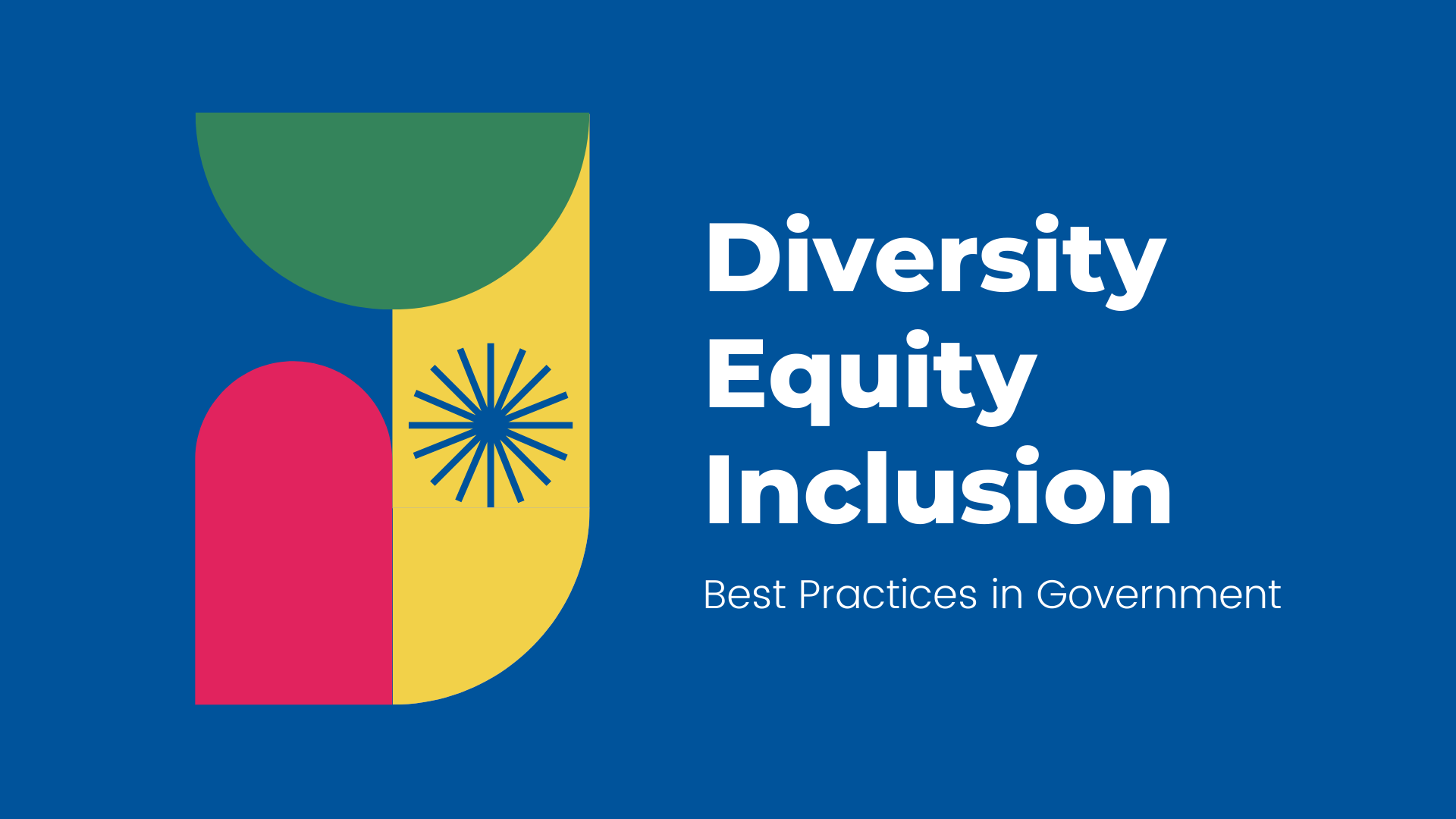DEI: Best Practices in Government

The federal government has long been a leader in promoting diversity, equity, and inclusion (DEI) in the workplace. Today, the results of these efforts can be seen across the federal government through initiatives that serve as DEI best practices and a commitment to continuous improvement.
Here are five federal initiatives that are fostering a more diverse, equitable, and inclusive workplace.
U.S. Army Renews Emphasis on DEI
As federal workplace policies evolve, the U.S. Army is renewing its emphasis on DEI policies by maintaining a vibrant workforce that represents the varied backgrounds of the American people.
To do that, the Army says it is working to ensure that employees understand current DEI policies and requirements “while simultaneously recruiting from a comprehensive pool of potential workers.”
This effort builds on goals established in 2016 by the U.S. Army’s Talent Management Strategy Force 2025 and Beyond plan which called for establishing a ready, professional, diverse, and integrated workforce. “The Army possesses people and teams with the breadth and depth of talents that collectively make our profession highly adaptable. In this context, diversity includes race, gender, and other demographics as well as the talents – skills, knowledge, and behaviors – of the total force.”
To learn more about the Army's commitment to DEI, visit https://www.armydiversity.army.mil/.
FBI’s First Chief Diversity Officer Spearheads Cultural Shift
The FBI’s first chief diversity officer is spearheading a “cultural shift” to prioritize DEI by aligning the agency’s hiring goals with those set by the Biden Administration for the federal workforce.
Scott McMillion, a 23-year-veteran of the agency and the FBI’s first chief diversity officer, cited several new efforts to recruit minorities and women.
In a recent interview with Government Executive, McMillion cited the Beacon Project as a key DEI initiative that is designed to reach out to Historically Black Colleges and Universities to ensure that individuals who never considered the FBI for employment would do so in the future.
The FBI has multiple honors internship programs that emphasize on “hiring persons from diverse backgrounds,” McMillion said. “In fiscal year 2022, we are including other groups into that hiring initiative — Beacon — where we'll look for women, Hispanics, Asians, and other indigenous people and Native Americans as well as Asian and Pacific Islanders.”
U.S. Department of Labor’s Office of Apprenticeship
FASTPORT, a Labor Department apprenticeship partner — in conjunction with the National Association of Publicly Funded Truck Driving Schools — is sponsoring a pilot program to provide ASL training to commercial truck driving instructors at the Amarillo College Truck Driving Academy in Texas.
The pilot aims to increase the number of students with hearing impairments who can receive CDL training. It also addresses the lack of employment and training opportunities for the hearing impaired in commercial trucking because of the cost to employ qualified American Sign Language (ASL) interpreters for students.
When ASL training is provided to commercial truck driving license (CDL) instructors, training becomes considerably more cost-effective and a recruiting draw for hearing-impaired students.
Dave Harrison, Executive Director of National Apprenticeships, FASTPORT, told apprenticeship.gov, “this will provide exponentially more opportunities in multiple locations for deaf students to thrive in the transportation sector.”
State Department’s First Chief DEI Officer Aims for “Gold Standard”
The State Department’s first chief DEI officer, Ambassador Gina Abercrombie Winstanley, plans to make the agency the “gold standard” in governmental DEI and accountability practices. Winstanley must first reverse the State Department’s silence culture around DEI-related issues.
At the Senior Executives Association Federal Executive Leadership Summit in December, Winstanley said, “The department has an informal culture that hardwires employees to keep our heads down when bad things happen. This is no longer acceptable.”
To change things, Winstanley has established three pillars that the agency is now focusing on:
- Intentionality, or the repeated focus on who isn’t being represented and why;
- Transparency, by collecting detailed and accurate data on the demographics of the State Department workforce; and
- Accountability, by holding perpetrators of discrimination, harassment, and retaliation accountable.
USAID Makes DEI a Transformative Priority
The United States Agency for International Development (USAID), an international development agency, has made DEI a top priority.
USAID works to advance U.S. national security and economic prosperity, demonstrates American generosity, and promotes a path to recipient self-reliance and resilience.
In a November speech at Georgetown University’s Walsh School of Foreign Service, USAID Administrator Samantha Power unveiled a new vision to make USAID an agency of “international development” and “inclusive development.”
Power’s strategy lays out a series of steps the agency is implementing to enhance diversity among underrepresented groups in its hiring and policies promoting inclusion and equity for everyone in the workplace, improving accountability for promoting and sustaining a diverse workforce, and building an inclusive agency culture.
According to devex.com, the three key pillars of the new strategy makes aid more accessible by diversifying the types of partners with whom USAID works and being more responsive to those who need aid the most.

